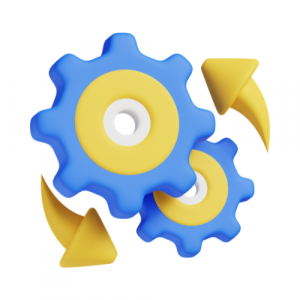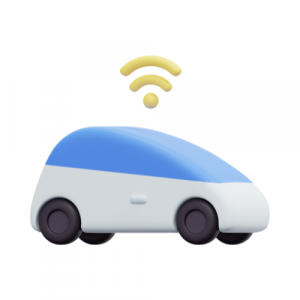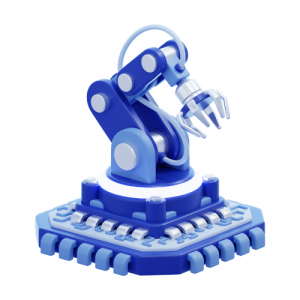By 2025, it’s projected that over 75 billion devices will be connected through the Internet of Things (IoT). This vast network is set to transform industries and everyday life by enabling devices to collect and share data in real-time. From optimizing supply chains to improving home automation, IoT is revolutionizing how we interact with the world around us.
At the heart of this IoT revolution lies embedded engineering, the discipline that enables smart devices to function seamlessly in a connected ecosystem. Let’s explore how IoT is reshaping embedded engineering and what it means for the future of technology.
Understanding IoT and Embedded Engineering
IoT refers to a network of physical devices integrated with sensors, software, and other technologies, allowing them to collect, share, and exchange data with other devices and systems over the internet. Embedded engineering, on the other hand, involves designing and developing these devices by integrating hardware and software in a compact, efficient manner.
Embedded systems are the backbone of IoT, providing the computational power and communication capabilities that allow devices to interact with their environment and each other. From sophisticated smart homes to intricate industrial automation, embedded systems are the key components that make IoT applications work, turning concepts into reality.
The Convergence of IoT and Embedded Engineering
The integration of IoT with embedded engineering has led to the development of smart, interconnected systems that can monitor, analyze, and act upon data in real-time. This convergence has several key implications:
 Enhanced Functionality: IoT expands the capabilities of embedded systems by enabling them to communicate with a vast array of devices. This connectivity allows for more complex functionalities, such as remote monitoring, predictive maintenance, and automated decision-making.
Enhanced Functionality: IoT expands the capabilities of embedded systems by enabling them to communicate with a vast array of devices. This connectivity allows for more complex functionalities, such as remote monitoring, predictive maintenance, and automated decision-making.
 Real-Time Data Processing: Embedded systems in IoT applications often require real-time data processing. Whether it’s a wearable device monitoring vital signs or an industrial sensor tracking machinery performance, the ability to process and respond to data instantaneously is crucial. This demands optimized embedded software and powerful microcontrollers that can handle high-speed data streams.
Real-Time Data Processing: Embedded systems in IoT applications often require real-time data processing. Whether it’s a wearable device monitoring vital signs or an industrial sensor tracking machinery performance, the ability to process and respond to data instantaneously is crucial. This demands optimized embedded software and powerful microcontrollers that can handle high-speed data streams.
 Energy Efficiency: IoT devices, particularly those deployed in remote or inaccessible locations, need to be highly energy-efficient. Embedded engineers are tasked with designing systems that maximize battery life while maintaining performance. This involves choosing the right components, optimizing power consumption, and developing energy-efficient algorithms.
Energy Efficiency: IoT devices, particularly those deployed in remote or inaccessible locations, need to be highly energy-efficient. Embedded engineers are tasked with designing systems that maximize battery life while maintaining performance. This involves choosing the right components, optimizing power consumption, and developing energy-efficient algorithms.
 Security Challenges:As more devices connect, the risk of cyber threats grows. Embedded engineering must focus on security to protect IoT devices from unauthorized access and data breaches. This includes implementing secure communication protocols, encryption, and robust authentication methods.
Security Challenges:As more devices connect, the risk of cyber threats grows. Embedded engineering must focus on security to protect IoT devices from unauthorized access and data breaches. This includes implementing secure communication protocols, encryption, and robust authentication methods.
 Scalability: IoT systems often need to scale to accommodate a growing number of devices. Embedded engineers must design systems that are not only efficient and secure but also scalable, capable of handling the increased data load and communication traffic as more devices are added to the network.
Scalability: IoT systems often need to scale to accommodate a growing number of devices. Embedded engineers must design systems that are not only efficient and secure but also scalable, capable of handling the increased data load and communication traffic as more devices are added to the network.
Real-World Applications
The impact of IoT and embedded engineering can be seen across various industries:
 Smart Cities: IoT-enabled embedded systems are used in smart city infrastructure, including traffic management, energy distribution, and waste management, improving efficiency and quality of life for residents.
Smart Cities: IoT-enabled embedded systems are used in smart city infrastructure, including traffic management, energy distribution, and waste management, improving efficiency and quality of life for residents.

Healthcare: Wearable devices and remote monitoring systems, powered by embedded engineering, allow for continuous health monitoring, early diagnosis, and personalized treatment plans.

Industrial Automation: IoT sensors embedded in machinery enable predictive maintenance, reducing downtime and optimizing production processes in manufacturing plants.
 Automotive: The automotive industry uses embedded IoT systems in connected cars, enhancing safety features, enabling autonomous driving, and providing real-time vehicle diagnostics.
Automotive: The automotive industry uses embedded IoT systems in connected cars, enhancing safety features, enabling autonomous driving, and providing real-time vehicle diagnostics.
The Future of IoT and Embedded Engineering
As IoT grows, embedded engineering will become more crucial. Innovations such as edge computing, which processes data closer to its original source rather than relying on centralized cloud systems, will extend the capabilities of embedded systems. Plus, advancements in artificial intelligence and machine learning will enable embedded IoT devices to operate more autonomously, making decisions with reduced human intervention.
In summary, the combination of IoT and embedded engineering is at the forefront of technological progress. As these areas develop, they will open up new possibilities, revolutionizing industries and daily life. For embedded engineers, this presents a unique challenge and opportunity to shape the future of connected technology.
The Experion Difference
At Experion, we are making significant strides in the IoT space. Our approach stands out through our comprehensive edge computing solutions that ensure faster and more efficient data processing. We also integrate advanced AI and machine learning algorithms into our IoT systems, enhancing their ability to learn and adapt in real-time. By focusing on these cutting-edge technologies, Experion not only keeps pace with IoT advancements but also drives innovation, offering tailored solutions that meet the evolving needs of our clients.
Experion’s IoT-powered supply chain solution provided real-time visibility and automation for a global logistics leader. By leveraging barcode scanning, mobile applications, and cloud-based technology, the solution enabled accurate tracking of goods, improved decision-making, and enhanced operational efficiency. The project showcased Experion’s expertise in designing and implementing innovative IoT solutions for complex business challenges. It leverages IoT principles by connecting physical devices (barcode scanners) to the internet and using data to provide valuable insights and services.
We are always excited to explore new opportunities and welcome partnerships that align with our vision for innovation. If you’re interested in collaborating with Experion, we invite you to join us in pushing the boundaries of IoT and embedded engineering. Together, we can leverage our expertise to create transformative solutions that drive progress and success. Let’s work together to shape the future of connected technology.

